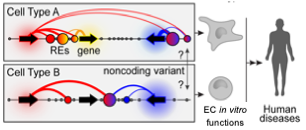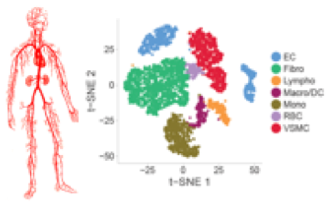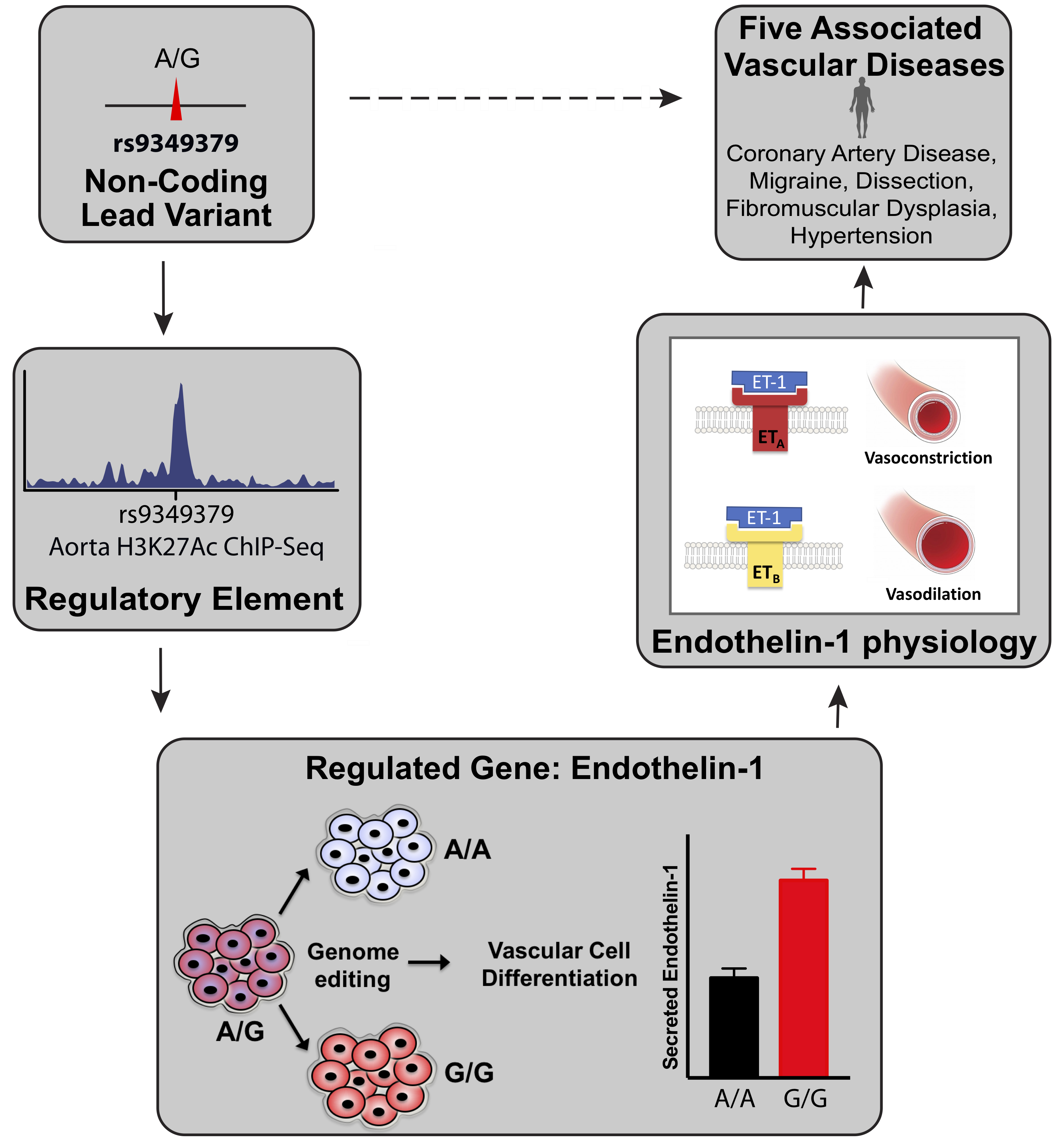
1. Variant to Function for vascular disease-associated common mutations. Genome wide association studies (GWAS) have identified over 60,000 genetic loci associated with human disease. Yet, it has proven extremely challenging to identify which genes mediate the effects of genetic variation on disease. Most causal variants affect noncoding regulatory elements such as enhancers, whose target genes can be located up to megabases away in the genome. As such, each noncoding GWAS locus includes up to dozens of candidate genes.
Our lab is interested in developing new approaches to connect single nucleotide polymorphisms (SNPs) associated with vascular disease to their causal genes functional pathways. We are combining new methods in genetic epidemiology, epigenetics, and high-throughput CRISPR/Cas9-based genome editing. For diseases such as coronary artery disease, migraine headache, arterial dissection, and hypertension we are studying the set of common variants with functional effects in endothelial cells.
2. The role of vascular cell heterogeneity in healthy and diseased blood vessels. We use the latest methods in single cell transcriptional profiling to study the cell subpopulations that contribute to vascular development and disease. We recently identified 3 functionally distinct endothelial cell subpopulations in the normal mouse aorta (Circulation, 2019). These ECs have transcriptional profiles that suggest specialization in key functions such as lipid transport, angiogenesis, and extracellular matrix production. We are now studying the developmental drivers of this heterogeneity and the changes that occur in human vascular disease.


3. The protective effects of Endothelin-1 in vascular disease. We recently identified a single SNP at chromosome 6p24 that is associated with increased risk of coronary artery disease, but is protective for arterial dissection, fibromuscular dysplasia, and migraine headache. We are studying the regulatory effects of this non-coding region of the genome on Endothelin-1 expression. We are particularly interested in the protective effects on arterial dissection, since there are no effective therapies beyond blood pressure control and surgery for this often-lethal disease.
